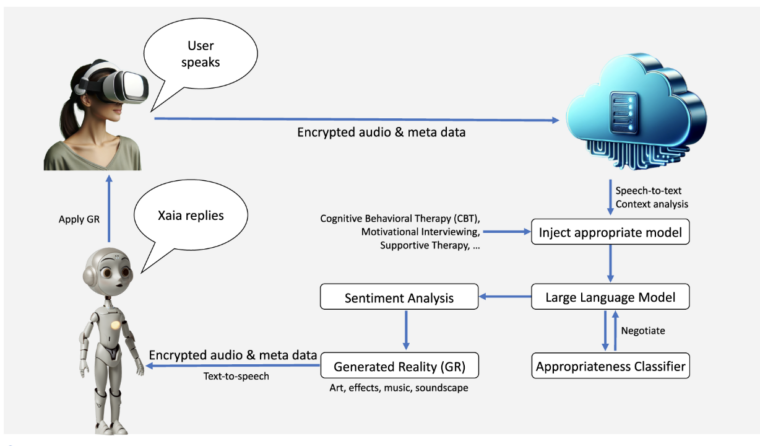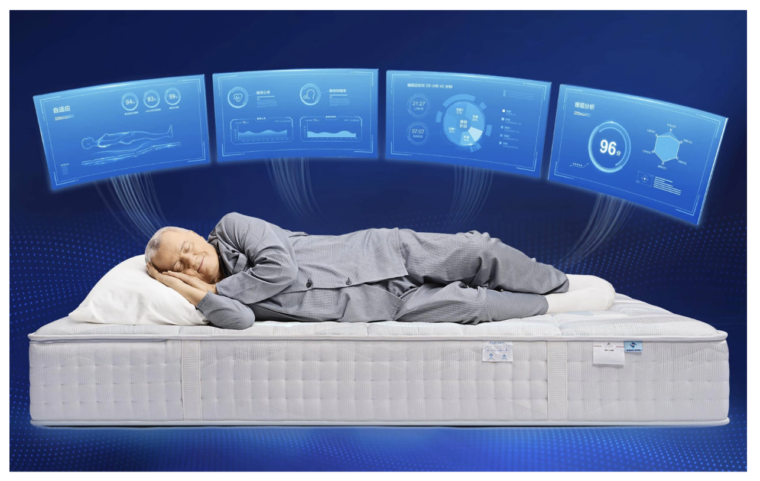Using AI for Sleep and Stress Management
In a world where stress seems to lurk around every corner and sleep is as elusive as a full moon on a foggy night, we turn to technology. Specifically, Artificial Intelligence (AI).
But how exactly does AI help with sleep and stress management?
Let’s explore the three key areas where AI is making a substantial impact:
- personalized sleep solutions,
- real-time stress monitoring,
- and behavioral interventions for better mental health.
How Can AI Personalize Your Sleep Experience?
Maybe you’ve already tried counting sheep, reading a book, or listening to white noise, but getting good sleep remains a mystery.
AI offers a more personalized solution – advanced sleep tracking technologies. These systems don’t just give general advice; they study your unique sleep patterns.
Custom Sleep Plans
Advanced AI algorithms analyze data from sleep trackers to create custom sleep plans. These trackers monitor everything from your REM cycles to how often you toss and turn.
The result? A personalized sleep guide made just for you.
Environmental Adjustments
Some AI-powered devices can adjust your environment to help you sleep better.
Imagine your room’s lights dimming gradually as bedtime approaches, simulating a natural sunset. Or your temperature-controlled mattress cooling down because it knows you sleep better in cooler conditions.
AI can even work with smart home devices to create the perfect sleep sanctuary.
What Makes Real-Time Stress Monitoring So Effective?

Unlike traditional methods that rely on people telling how stressed they feel, which can be very subjective, real-time stress monitoring uses biometric data to provide instant feedback.
But what makes this approach so revolutionary?
Instant Feedback
Immediate results bring immediate relief. When you wear a device equipped with facial recognition or heart rate detection, it analyzes changes in your body instantly.
This data is then processed by AI to offer advice right when you need it most. You might get a nudge to take deep breaths or even suggestions for a quick meditative exercise.
Personalized Stress Relievers
Not all stress solutions work for everyone. Your friend might find yoga relaxing while you find it as stressful as solving a Rubik’s Cube with your eyes closed.
AI learns from your individual responses to different interventions, suggesting relaxation techniques that work specifically for you. Over time, it refines its recommendations based on what has proven to be effective in reducing your stress levels.
Can AI Really Improve Mental Health Through Behavioral Interventions?

When it comes to managing stress and improving mental health, changing behavior is key. But changing behavior is hard—unless you have some intelligent help.
Virtual Therapists
AI-based virtual therapists offer help 24/7.
These digital companions use Natural Language Processing (NLP) to understand your emotional state and provide conversations that mimic those you’d have with a human therapist.
They’re especially helpful for people who feel nervous about talking face-to-face or dealing with social anxiety.
Habit-Forming Techniques
Achieving mental well-being often involves forming good habits and breaking bad ones.
Smart apps use machine learning algorithms to track your habits and provide useful insights. If the app notices that you’re often stressed during certain times of the day, it might suggest activities like mindfulness exercises before your stress levels increase.
Over time, these small interventions can lead to big improvements in your mental health.
Conclusion
Using AI for sleep and stress management might sound like magic, but it’s based on science and practicality.
Whether you’re always stressed out or just looking to get better sleep, there’s likely an AI solution designed just for you.

